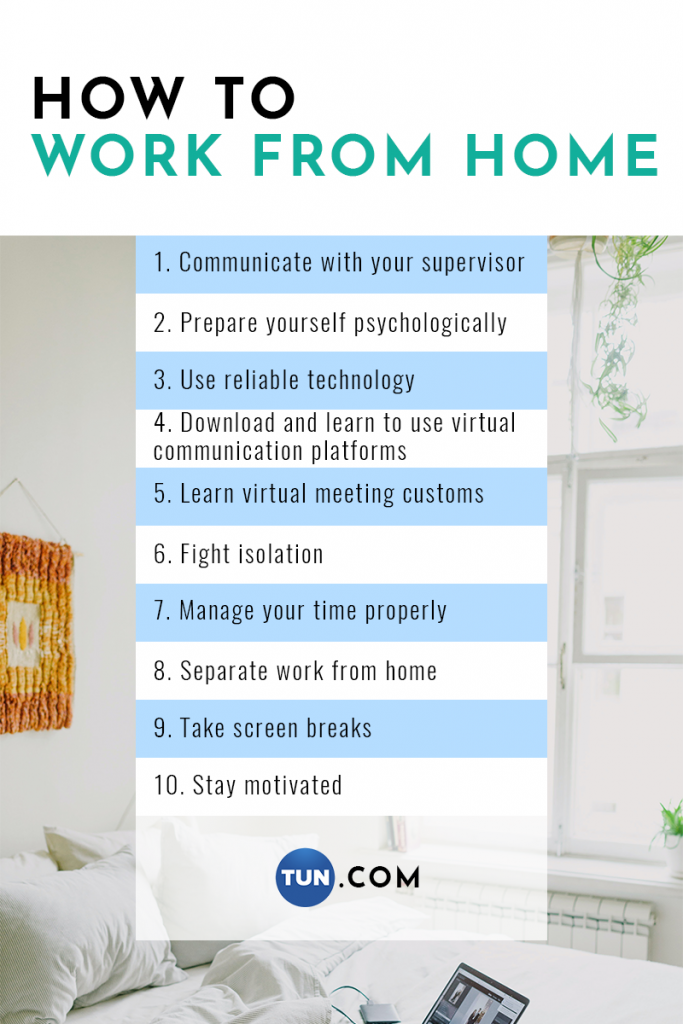Amid all of the uncertainties caused by the coronavirus pandemic, one thing is set in stone. Work will never be the same. Remote work has become a new norm. Companies, organizations, and government bodies have fundamentally changed the ways that they operate. Even after the pandemic settles down, many employees and interns will still be working from their home offices, kitchens, bedrooms, and couches.
Some experts estimate that as much as 70 percent of the current workforce could be working remotely by 2025. While that estimate seems high, it points to the fact that many upcoming college students and graduates will be entering the workforce without stepping foot in an office. Of course, some jobs and tasks lend themselves to remote work more so than others. According to a recent McKinsey & Company study, finance, insurance, management, business services, and information technology will likely see the highest growth of hybrid and remote work. Naturally, these are all jobs that are digitized and require little to no physical interaction.
Remote work has many benefits but brings its own set of challenges. In this article, we touch on the benefits and explain how those challenges can be overcome.

Benefits of Working from Home
There are a lot of benefits to not having to go into an office.
The first is flexibility. Remote work often grants you the ability to work on tasks when you choose to. Having control over your work schedule can lead to a healthier work-life balance. For example, if you’re someone who needs to frequently step outside to grab some fresh air or have a dog that needs to be walked, working remotely makes it so that you can easily do those things.
The second benefit is the ability to travel. As a remote worker, you can get your work done wherever you have access to the internet. This means you can go visit friends and family more frequently. You can take a trip to a new city or even check out a national park. As long as you’re effectively able to do your job, it doesn’t matter where you are.
The third major benefit of remote work is that you no longer have to commute. In addition to saving you the cost and stress and anxiety of waiting on a train, sitting in traffic, or being late, remote work saves you time to pursue outside-of-work activities. You may have an extra hour or two every day to exercise, read a book, spend time with your family and friends, or catch up on your favorite Netflix show.
Work from Home Tips
While there are notable benefits to remote work, the challenges can’t be ignored. As a student or recent graduate starting a remote job or internship, here are some essential tips to help you succeed.
1. Communicate with your supervisor
Communicating effectively with your supervisor is key to success in any job. If you have a question or concern, you want to make sure that you catch your supervisor when they’re available and in the right mood.
In a traditional office setting, it’s easy to gauge when, where, and how to communicate with your supervisor. However, in a virtual environment, communication isn’t always as intuitive. For that reason, it’s important to take a calculated approach.
“The first thing that students should do when they begin their role is talk about communication strategies with their supervisor,” said Cliff Frontera from Brooklyn College’s career center. “They can ask about best practices for communication when working remotely and ask their supervisor’s preference for communication. Do they prefer e-mail, Slack, or text message?”
2. Prepare yourself psychologically
As a remote worker, you aren’t pressured to wake up early for a commute. If you so wish, most of your work can be done laying in your bed. You don’t have to take a shower or put on any good clothes because you won’t physically be around people. While all of these things may sound tempting, they can quickly lead to a decline in your physical and mental health. Even as a remote worker, it is important to create and maintain a routine.
“Develop rituals and have a disciplined way of managing the day,” states Harvard Business Review (HBR). “Schedule a start and an end time. Have a rhythm. Take a shower, get dressed, even if it’s not what you’d usually wear to work, then get started on the day’s activities. If you’re used to moving physically, make sure you build that into your day. If you’re an extrovert and accustomed to a lot of contact and collaboration with others, make sure that still happens. Ask yourself: How will I protect myself from feeling lonely or isolated and stay healthy, productive, and vibrant? Create that for yourself.”
3. Use reliable technology
As a remote worker, your ability to effectively do your job relies on access to secure, reliable technology. Oftentimes, your employer will supply you with a laptop or desktop computer to work from. However, you also need to make sure that your WiFi is dependable and secure. And, as a pro tip, it helps to buy a pair of noise-canceling headphones, particularly if you’re going to be working in a busy space, such as an apartment with roommates or a coffee shop.
4. Download and learn to use virtual communication platforms
The rise in remote work has led to the emergence and growth of many virtual communication platforms, such as Zoom, Slack, Google Hangouts, and others. Oftentimes, companies may also use their own internal virtual communication platforms. So, before starting work, it is important to ask your supervisor about the specific platforms used by your company so that you can download and become familiar with them before starting.
5. Learn virtual meeting customs
Every company has its own unique culture. But, chances are, you won’t be able to turn off your screen and audio for all meetings like you may have done during virtual college classes. If you’re just starting out at a company, the best advice is to sit back and observe how your colleagues or fellow interns are acting and how much they are contributing.
If you’re already leading meetings or a team, HBR suggests that it is important to set a few ground rules, such as whether it is okay to work and check emails during meetings. Additionally, HBR suggests starting meetings out with 6-7 minutes of “watercooler conversation” to see how everyone on the call is doing and feeling.
6. Fight isolation
In a traditional office setting, you’re surrounded by co-workers. You sit next to them in meetings, run into them in the common spaces, and meet them for lunch. But while working remotely, it can be easy to feel isolated. Your time will be spent mostly alone with your computer.
“When it comes to isolation, students can ask if there are weekly meetings that they can be a part of so they can communicate and collaborate with the larger team,” said Frontera. “If the entire department is just the student and the supervisor, they can and should work with the supervisor to set up check-ins. Check-ins should focus not only on work expectations but also conversations like how are you doing while working remotely/keeping up with your workload.”
7. Manage your time properly
If you’re working from home, it can be tempting to try to knock all of your work out at once. But unfortunately, remote work does not equal less work. You’ll feel a lot happier and mentally healthier if you take regulated breaks throughout the day, just like you would in an office setting.
“Make sure you are designating yourself micro-breaks throughout the day — these can be 10-30 minutes — where you can get up for a walk or maybe listen to a podcast to reset your brain,” said Adam Capozzi, the director of career services, assessment and student success at Syracuse University.
8. Separate work from home
If you work in a traditional office setting, your job is physically separated from your home. As a virtual worker, however, that is not the case. Particularly if you’re very passionate about your job, it can be difficult to separate work from free time and log off when you need to.
“I recommend trying to create boundaries between you and your workspace,” said Capozzi. “If you do not have a dedicated office, even something as simple as putting your laptop out of sight when work has ended can help you avoid the temptation to log back on. Or you can try sectioning off part of a room for work, so it feels like a separate space.”
9. Take screen breaks
There are a ton of negative health effects related to excessive screen time, and they shouldn’t be ignored. Throughout the day, if there is a way to accomplish a task without looking at a screen, do it. You want to minimize screen time as much as possible.
“Prolonged screen usage can certainly lead to burnout,” said Frontera. “Students should work from outside if they are able to do so and opt for phone-call meetings when possible.”
10. Stay motivated
Staying motivated is a huge piece to success in any field. And to stay professionally motivated, you need to be mentally healthy. Unfortunately, the professional world is not like school. You won’t have teachers, professors, or counselors pushing you along when you start to fall behind or helping you out when you need someone to talk to. And as a remote worker, you won’t have co-workers sitting next to you. So, you need to make a considered effort to find those who you can rely on.
“Try finding a remote work accountability buddy,” said Capozzi. “You are not the only one going through this, so be sure to find those people, whether they are work colleagues or personal friends, as it is important to check in and chat about things that may not be work-related to provide you with a sense of balance and normalcy.”
Conclusion
All studies, trends, and predictions suggest that remote work is here to stay. Particularly if you’re just starting your career, you may not have a choice about whether you work remotely or in an office. So, it is important to understand what each style of work entails and effectively prepare yourself for both employment opportunities.



